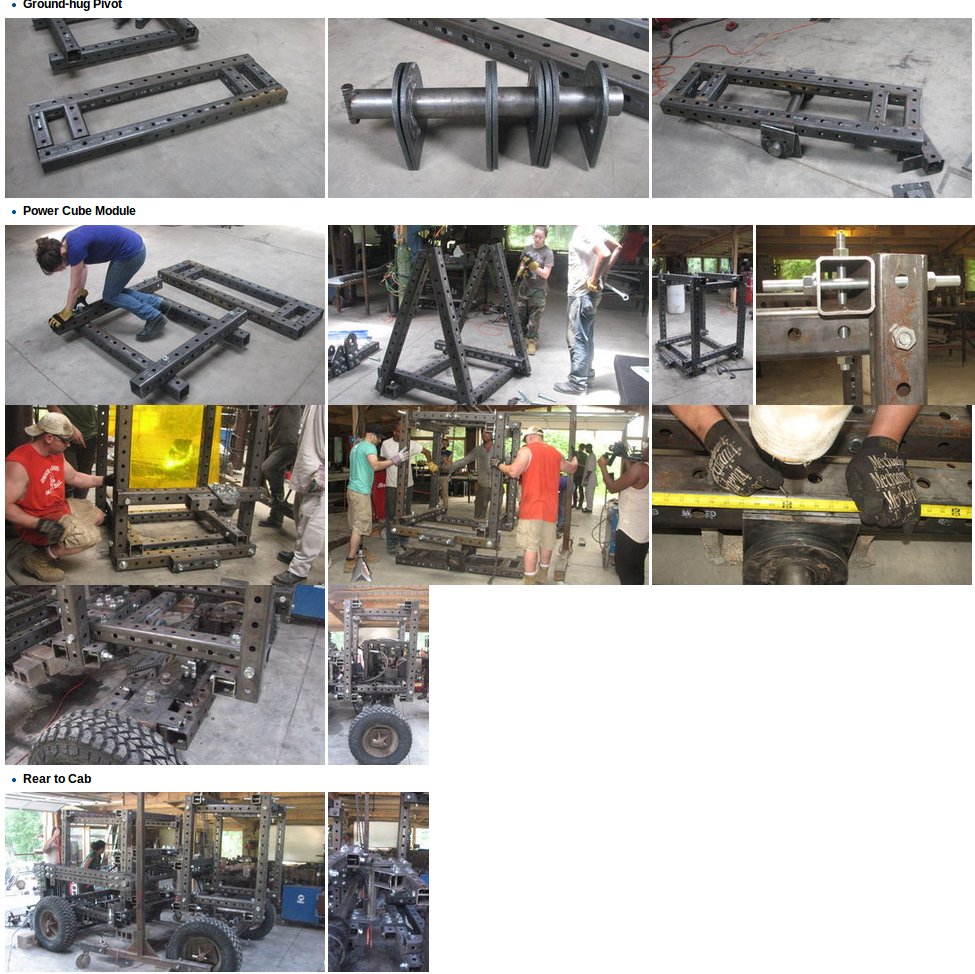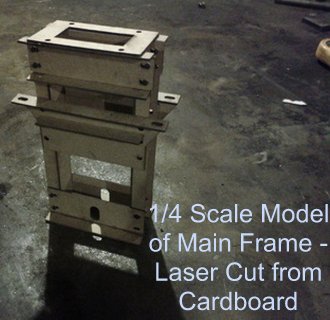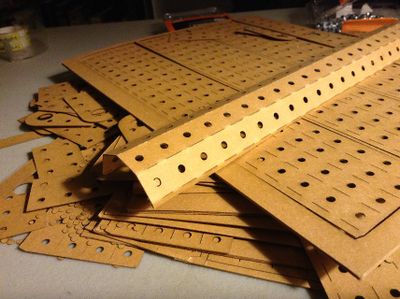OSE Rapid Prototyping
Introduction
We have observed in the build of GVCS machines that a 3D scale model can assist one greatly in terms of prototyping. The reasons are 4-fold.
- A scale model allows for several features to be tested which are not possible to see in a 3D model:
- Interference - while a 3D model can be drawn successfully, it may to always be possible to build it in real life because of unforeseen parts interferences. This may occur with respect to structural members or smaller parts, such as insertability of bolts. Ex. Interference prior to assembly - a bolt can fit in its final position, but you can't tell if it is insertable, or a nut is insertable, in the first place.
- Tooling Fit - CAD will not reveal whether it is possible to fit a wrench or other tool to access a specific fabrication operation. Example: you can't get a wrench in to tighten a bolt.
- Asssembly Order - CAD programs can't suggest an assembly order - as CAD will allow you to assemble something without it being possible in physical reality. Example: a 2-piece barbell with shaft through a hole can be assembled only if the 2 halves are put through the hole and then connected
- Motion - If there are joints, one requires a physics engine to determine motion. This motion can be tested in a scale model.
- A scale model assembly can be used to generate instructional videos that can be applied towards a real build.
- A scale model can be built in parallel with CAD modeling, making use of additional people in the design phase
- A scale model can be used as a toy - such that advanced engineering can be assisted by kindergarteners (let's do this as a video in LA!)
These models may be obtained by 3D printing or laser cutting. See Laser Cut Scale Model of Brick Press Frame:
2020 Additions
Whenever we build a heavy machine - we first build a scale, 3D printed model with electic motors and battery packs instead of hydraulic motors. Need to figure out how to do cylinders as well.
Construction Method
For prototyping, we are using 4 types of materials:
- 3" shaft
- 3" Stock Pivot Plates
- Stock Bonding Plate
- Stock Tubing
These can generate these structures - 
Files - 3D Printing
Here are the STL Files for the above - File:Construction Set.zip
Includes 2 tube lengths, pivot plate, and hollow shaft.
The hole in pivot plate is oversized for the shaft, to make sure it fits - but if it's too sloppy, we need to make the hole smaller.
Missing is a stock bonding plate. Please get these printed as samples, let me know if we have to make any change, and then we can make a full order, including stock bonding plate.
Files - Laser Cutting of Scale Models
Here are the laser cutter DXF files for the square tubing, Stock Bonding Plate, and Stock Pivot Plate.
Download:
- DXF - File:Constructionset.dxf
- PDF printout of DXF - File:Constructionset.pdf
The tube sides should be 1/2", and 10.5" long. The plates are 1"x2". Holes should allow tiny 1/8" bolts to fit through the holes after tubes are taped up. If this works, it should take under 50 of these tubes to build a tractor, 75 of one plate, 75 of the other. Appears about 5 of the tubes fit per 8.5x11 sheet, so would need 10 sheets + 2 + 2 sheets for the others. The round shaft is not addressed here. It could be any shaft we choose.
Laser Cutting Data
This is the Time for Laser Cutting Scale Models.
Laser Cut Scale Model
Backhoe Pivot

